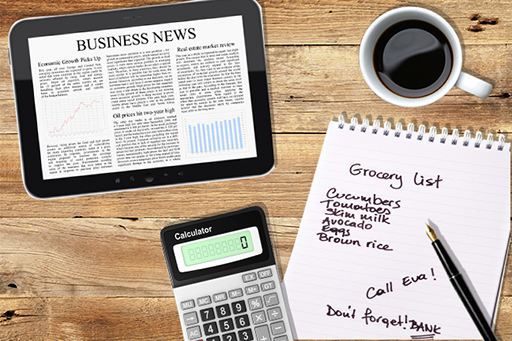7 The reasons for budgeting
Managing your money is about being smart with what you’ve got. It’s a bit like exercising and eating well to keep healthy. The skills you’re learning here are equipping you with a training regime that will keep your money in good shape.
Like most people, you probably feel the pressure to spend money on goods and services – on ‘stuff’ and on things you like to do. And of course there are those ‘invisible’ bills if you contribute to the essential costs of staying alive in the first place, such as accommodation, heating, lighting, food, washing, transport.
So we need to spend money, but at the same time we all need to avoid debt, to save and to invest for the future. Why?
Why do you need to avoid getting in debt? Because debt means paying back the money you’ve borrowed plus more money on top. It means that whatever you’ve spent costs you a whole lot more than it should have.
Why save and invest for the future? Because anything you stash away now makes your life so much easier in the future.
In this part of the course you learn the process of budgeting – a technique that can help you to solve competing demands on your income. A budget identifies and adjusts the flow of your money coming in and going out – your ‘income and expenditure flows’. It looks forward, to estimate and plan income and expenditure over a future time period.
So how does setting a budget help you manage your household finances?
- It helps you control spending by comparing your income with your spending.
- It helps you check that you have enough income to pay current and future bills without having to borrow.
- It enables you to plan on how to meet your goals.
Carrying out a budgeting exercise once is useful to help you to work out if your spending is under control, but budgeting is most effective when you use it as part of an ongoing process.
Earlier in this session you looked at how effective budgeting also means identifying essentials, non-essentials and desirables. It’s the non-essentials that are the first to go if your expenditure is exceeding your income.

